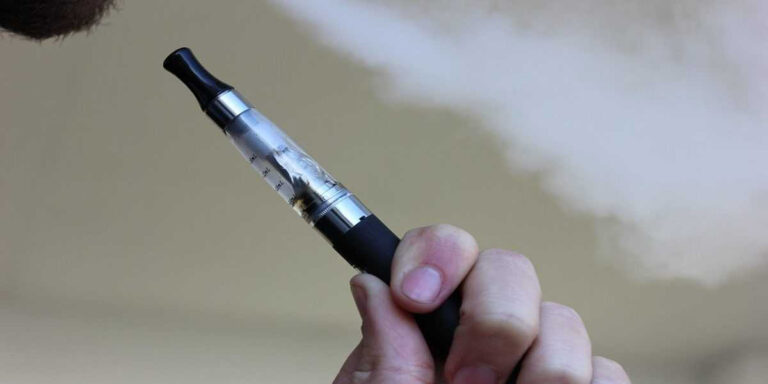On August 26, 2024, the Canadian Press reported that the Canadian Convenience Stores Council (CICC) has strongly urged the Quebec government to establish a licensing system for all retailers selling e-cigarette products. This initiative is aimed at enforcing the province’s ban on flavored e-cigarettes, which has been undermined by some retailers who continue to sell these products disguised as food flavorings.
Current State of E-Cigarette Regulation in Quebec
Flavored E-Cigarette Ban
Since October 31, 2023, Quebec has enforced a ban on the sale of flavored e-cigarette products. This legislation was introduced as a public health measure to reduce the appeal of vaping among young people, who are particularly drawn to sweet and fruity flavors.
Widespread Non-Compliance
Despite the ban, Michel Gadbois, Vice President of the CICC, reported that approximately 80% of e-cigarette shops in Quebec continue to flout the law by selling flavored products disguised as food flavorings. These shops often operate under the facade of convenience stores, making it difficult for regulators to enforce the ban effectively.
Impact on Legal Market
The widespread availability of illegal flavored e-cigarettes has significantly impacted the market share of legal e-cigarette products. According to the CICC, the loss of market share due to these illegal sales varies widely across different regions, ranging from 2% to as much as 50%.
Proposed Licensing System
Modeled After Alcohol Sales Regulations
To address these violations, the CICC has proposed a licensing system modeled after the regulations for alcohol sales. Under this system, any store selling e-cigarette products would be required to obtain a license, ensuring that at least 51% of their displayed products are food items with a minimum total value of CAD 5,500.
Regulatory Oversight by RACJ
The CICC suggests that the Régie des alcools, des courses et des jeux (RACJ) should oversee the licensing process. This would involve initial investigations and ongoing inspections to ensure compliance with the regulations. Gadbois emphasized that this system could be swiftly implemented through regulatory changes without imposing additional costs on the government.
CICC’s Advocacy and Government Response
CICC’s Persistent Advocacy
The CICC submitted its proposal to the Quebec government six months ago, calling for immediate action to close the loopholes allowing continued sales of illegal flavored e-cigarettes. However, the government has yet to take any action. Frustrated by the delay, Gadbois stated, “We told them that if they don’t act immediately, we will make this issue public and increase public pressure.” The CICC is now actively bringing the issue to public attention to expedite government action.
Critique of Health Department
Gadbois also criticized the Quebec health department for not taking the issue of illegal e-cigarette sales seriously enough, highlighting the significant social risks posed by these products, especially given their appeal to young people.
CICC’s Stance on Flavored E-Cigarettes
Balanced Approach to Flavors
Before the complete ban on flavored e-cigarettes, the CICC had advocated for allowing certain flavors, such as mint and some fruit flavors, which they believed could help adult smokers transition away from traditional cigarettes. However, the CICC strongly opposes flavors like pineapple, cotton candy, and bubblegum, which are clearly designed to attract young people. The council believes these flavors should not be permitted in the market due to their potential to lure minors into vaping.
Conclusion
The CICC’s call for a licensing system for e-cigarette sales in Quebec underscores the urgent need for more effective enforcement of the province’s flavored e-cigarette ban. As the CICC continues to push for regulatory changes, the Quebec government is facing growing pressure to act against illegal e-cigarette sales that target young people. Implementing the proposed licensing system could be a crucial step in ensuring that e-cigarette sales are tightly regulated and that public health is protected.
FAQs
What is the current status of flavored e-cigarette sales in Quebec?
Flavored e-cigarette products have been banned in Quebec since October 31, 2023. However, many e-cigarette shops continue to sell these products disguised as food flavorings.
What licensing system is the CICC proposing?
The CICC is proposing a licensing system similar to that used for alcohol sales. E-cigarette shops would need to obtain a license, ensuring that at least 51% of their displayed products are food items, and undergo regular inspections by the Régie des alcools, des courses et des jeux (RACJ).
Why does the CICC want a licensing system for e-cigarette sales?
The CICC believes that a licensing system would help enforce the existing ban on flavored e-cigarettes, crack down on illegal sales, and protect public health by making it more difficult for shops to sell banned products.
Has the Quebec government responded to the CICC’s proposal?
As of the latest report, the Quebec government has not taken action on the CICC’s proposal, despite being informed of the issue six months ago. The CICC is now increasing public pressure to prompt a response.
What is the CICC’s stance on flavored e-cigarettes?
The CICC supports the retention of certain flavors, like mint, for adult smokers but strongly opposes flavors that target young people, such as pineapple, cotton candy, and bubblegum.
How might the proposed licensing system impact the e-cigarette market in Quebec?
If implemented, the licensing system could lead to stricter enforcement of the flavored e-cigarette ban, potentially reducing the availability of these products and protecting minors from being targeted by appealing flavors.


















